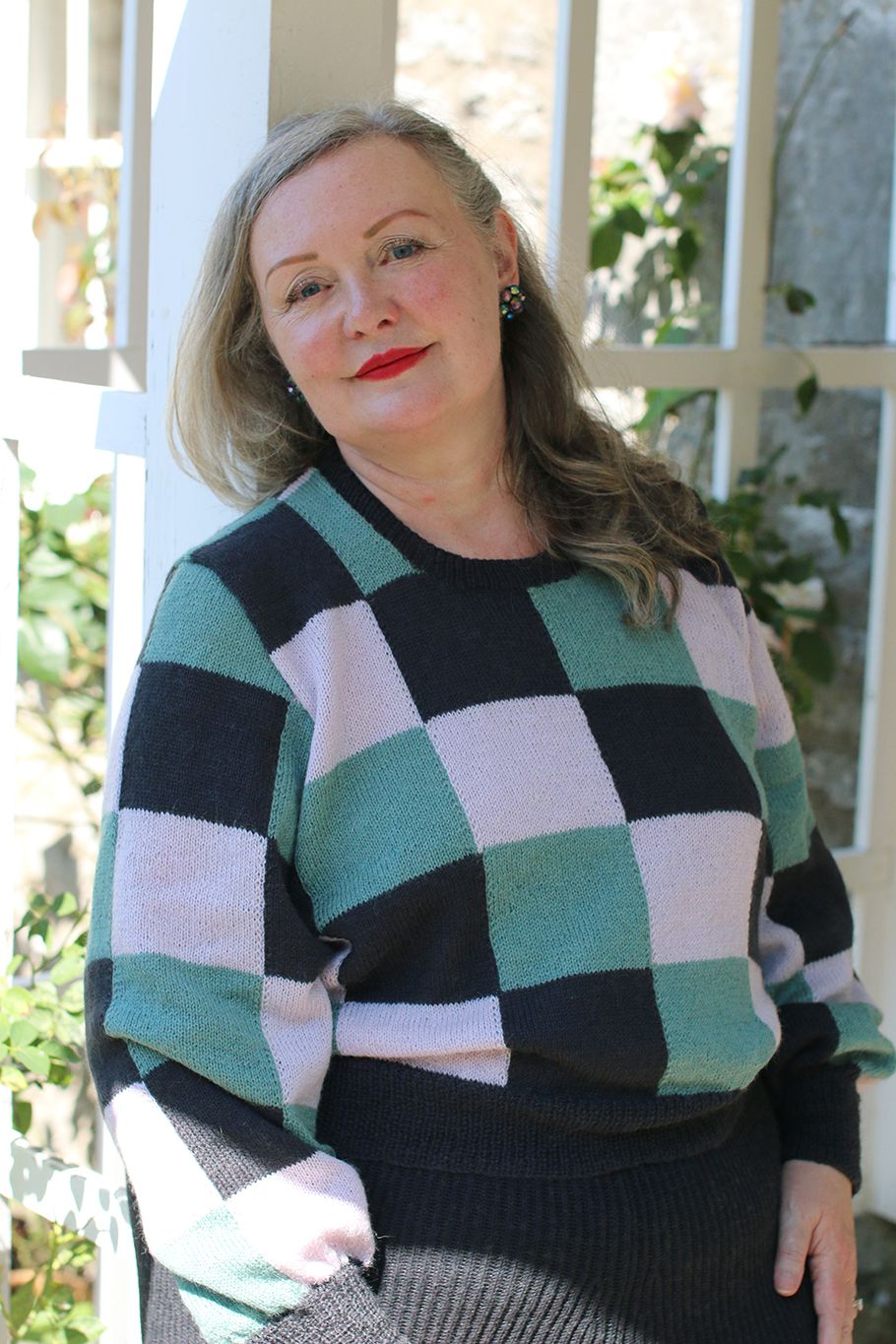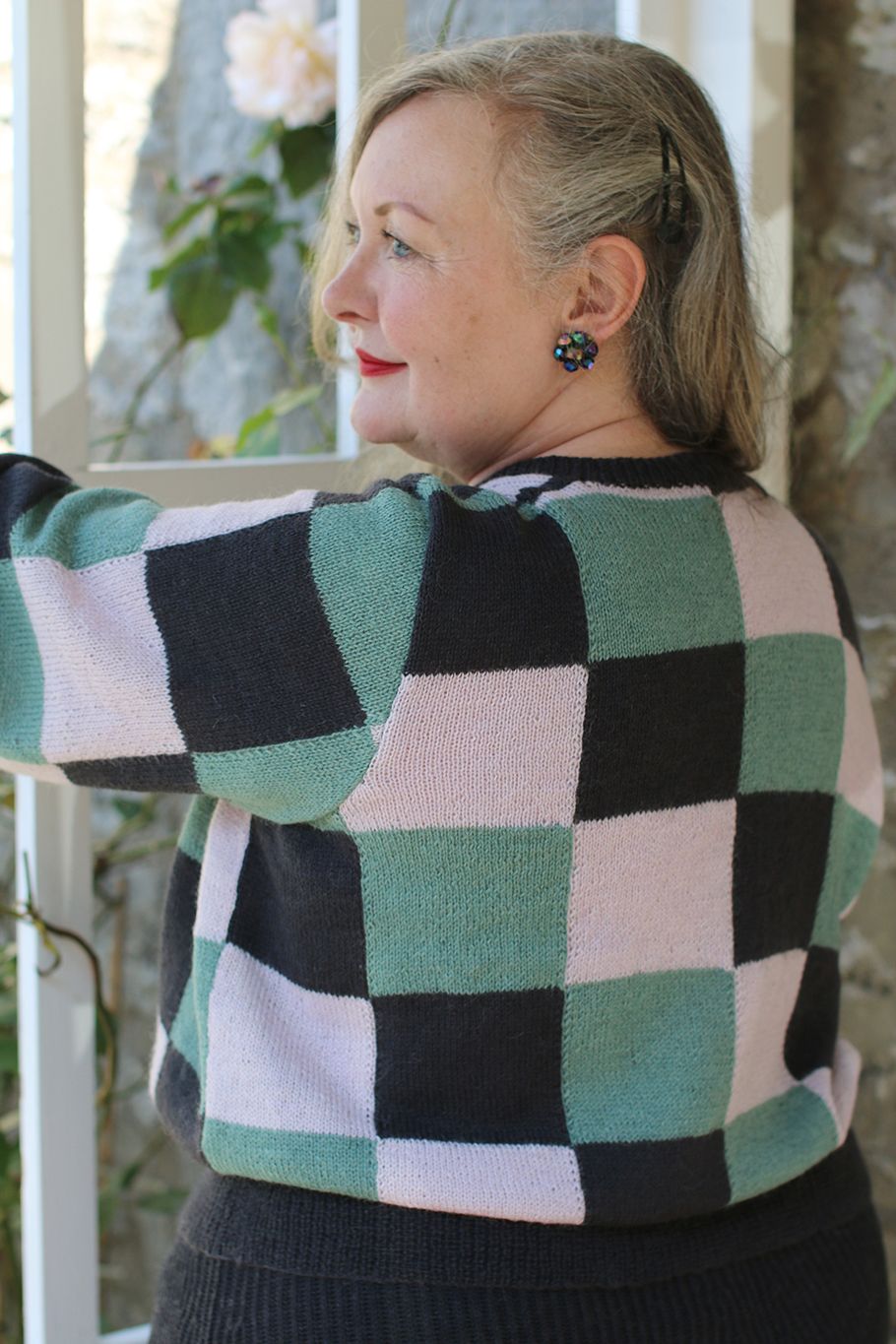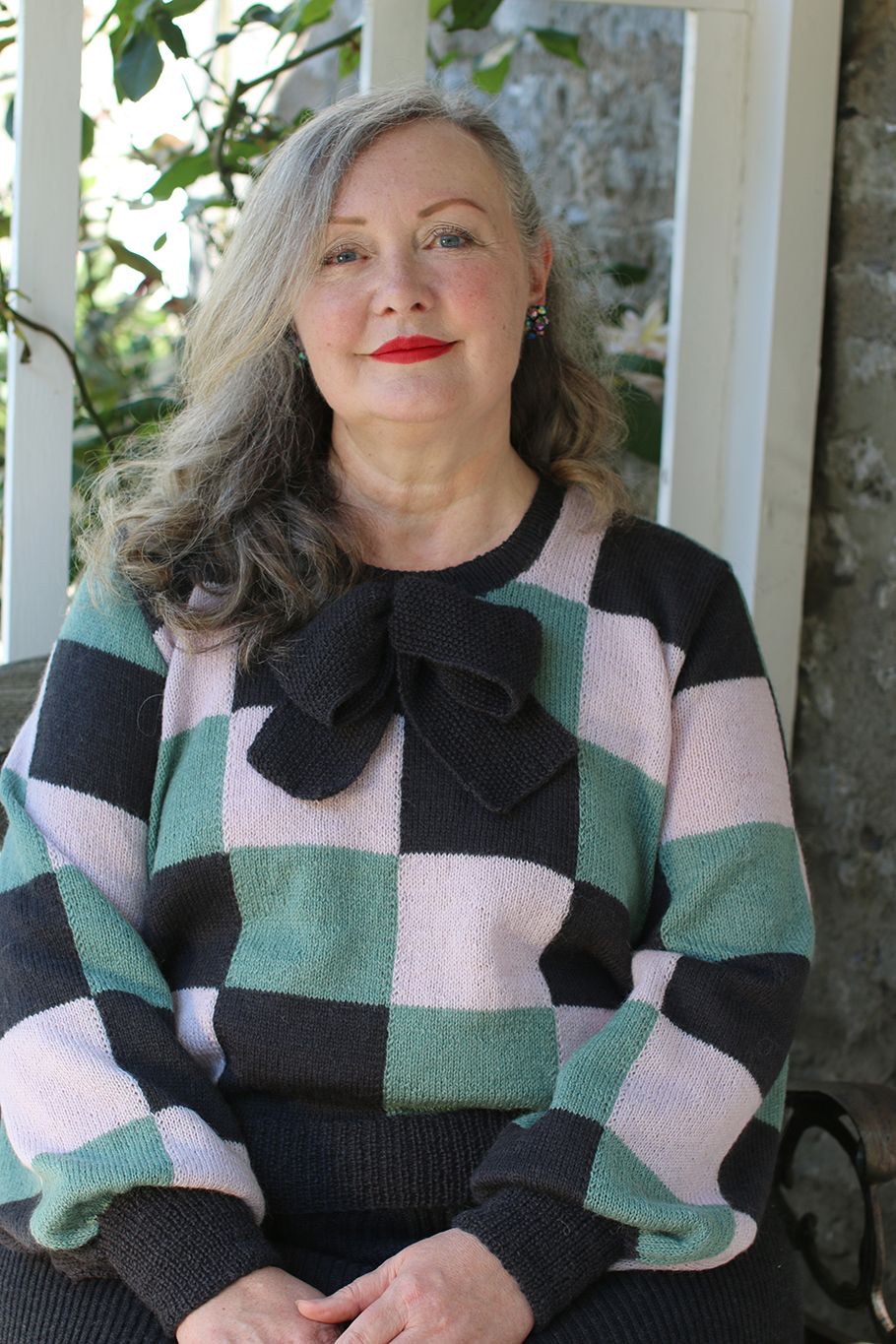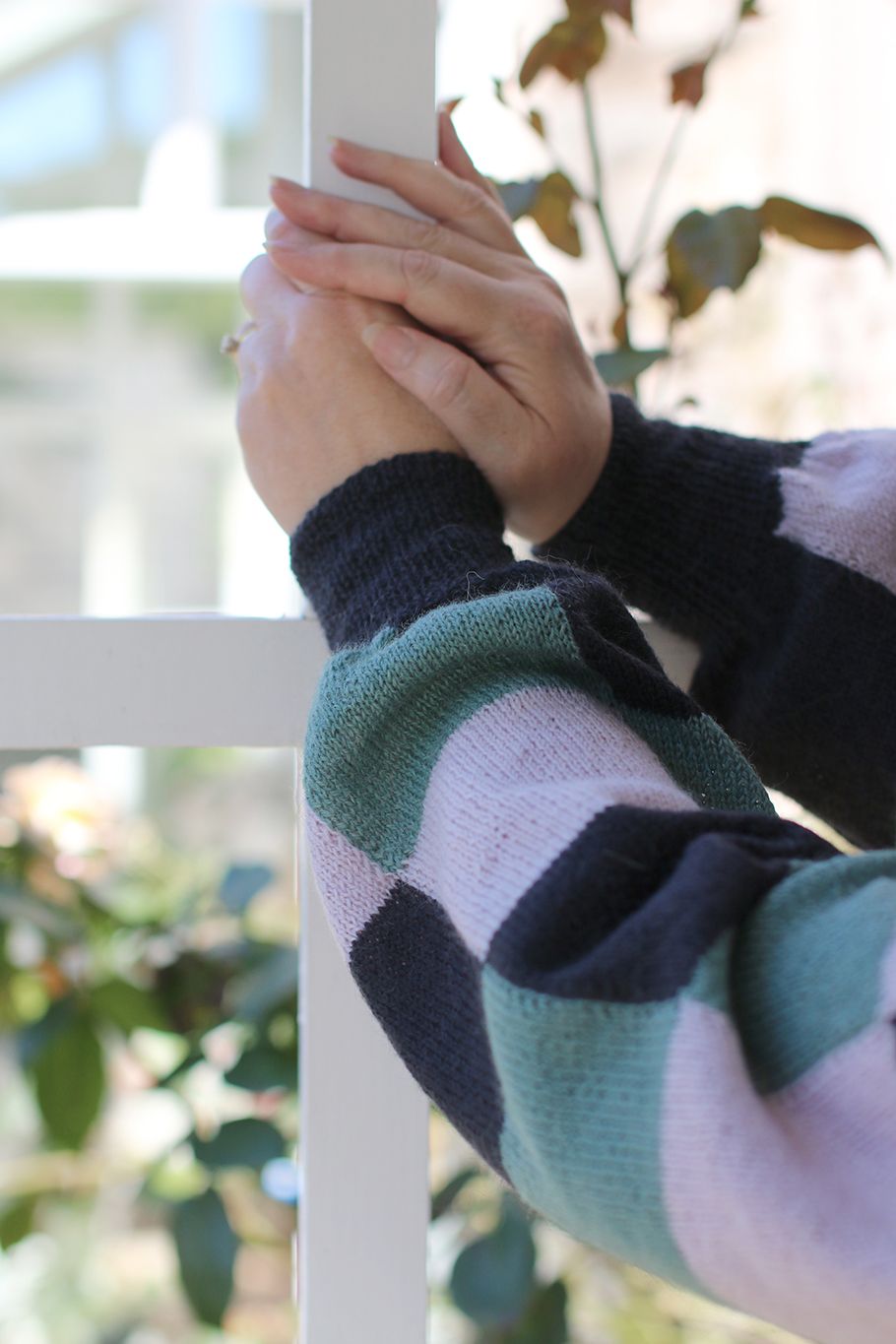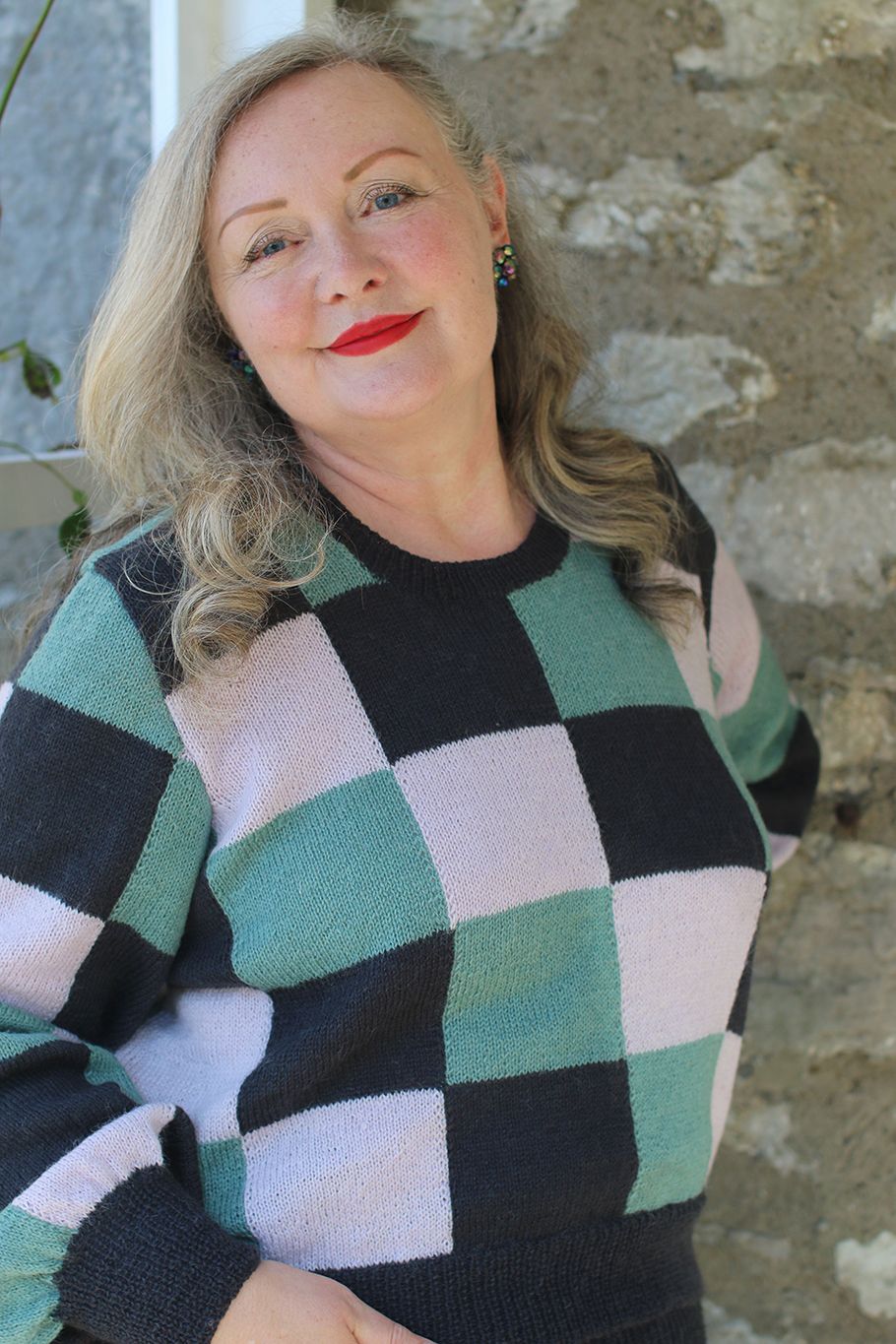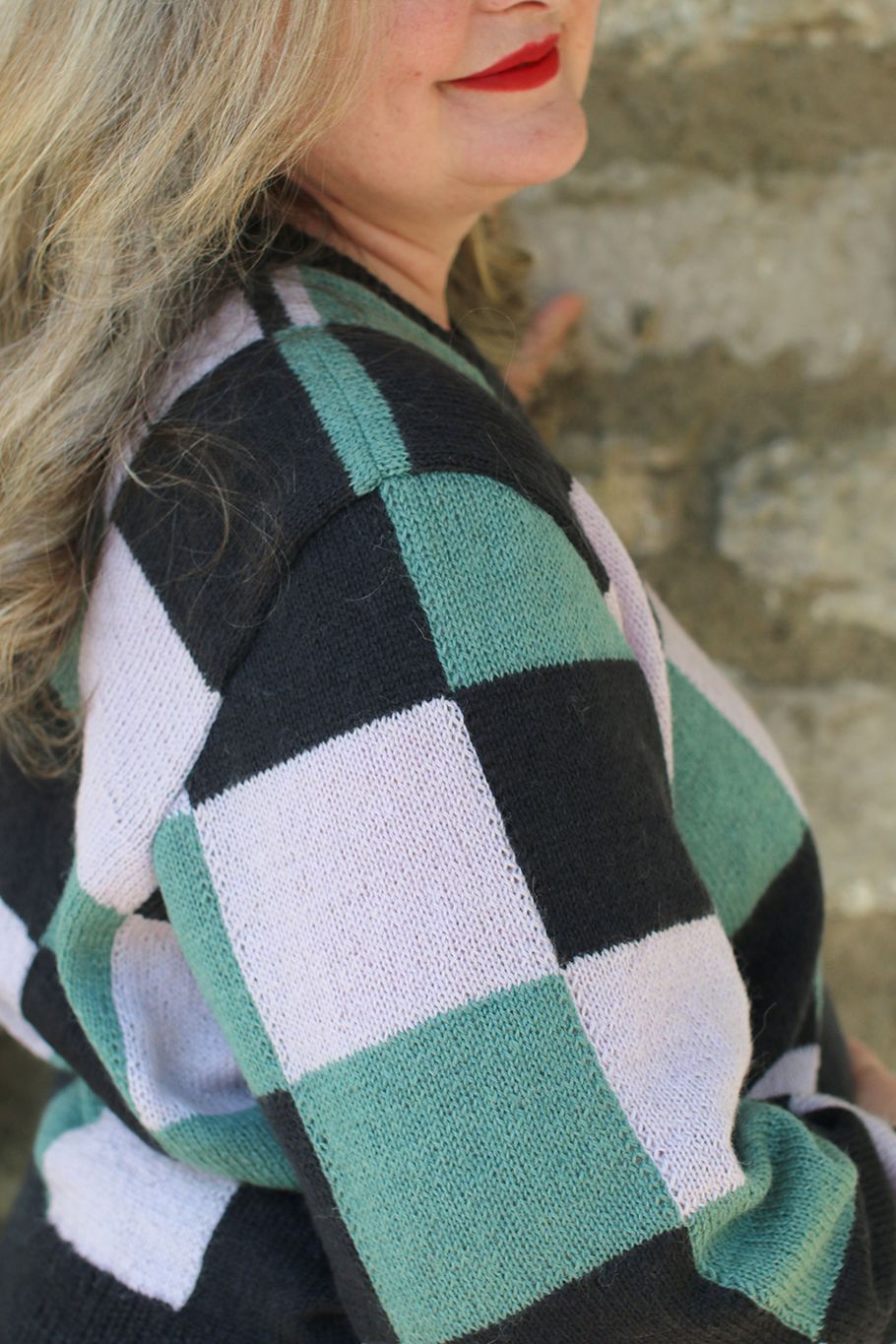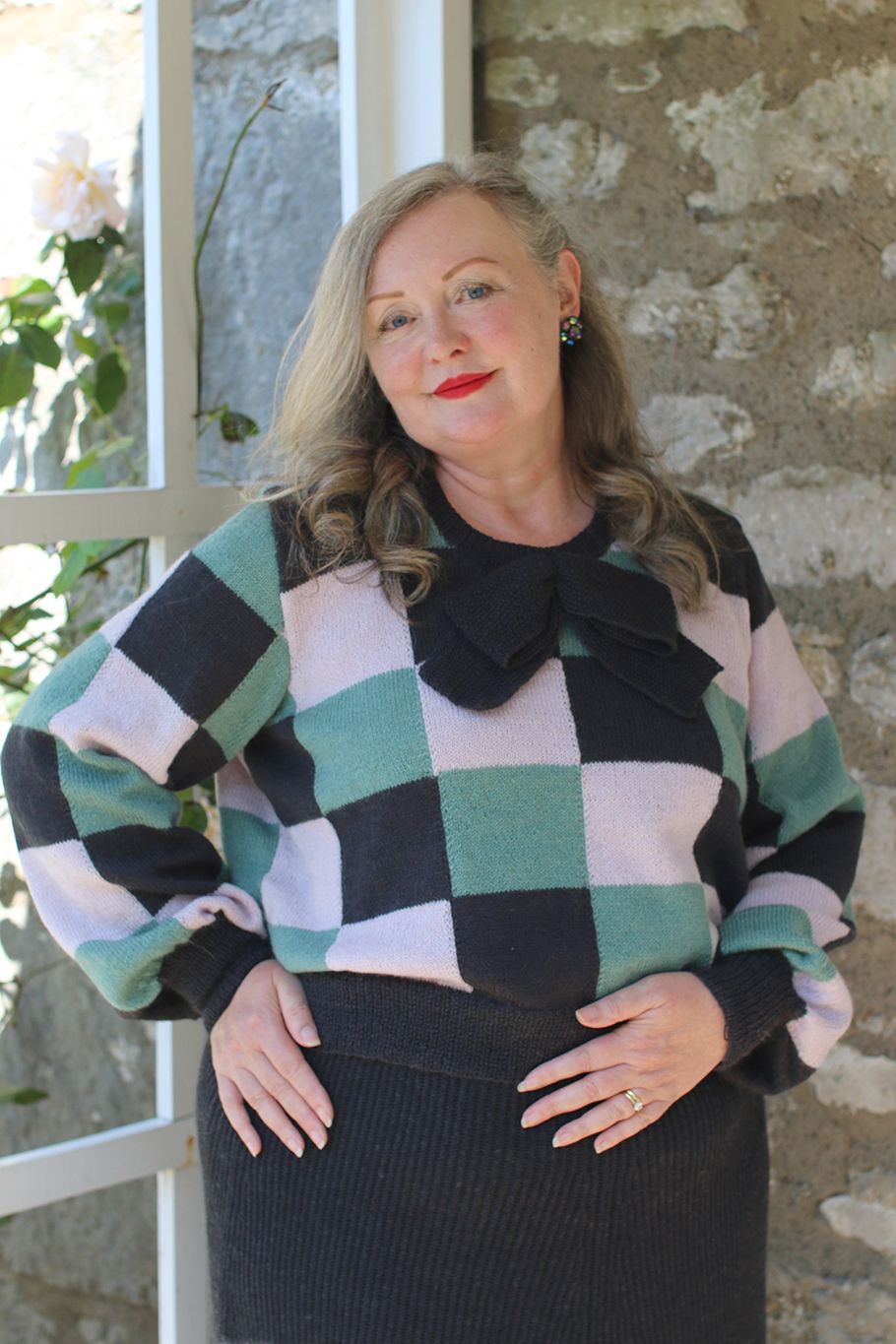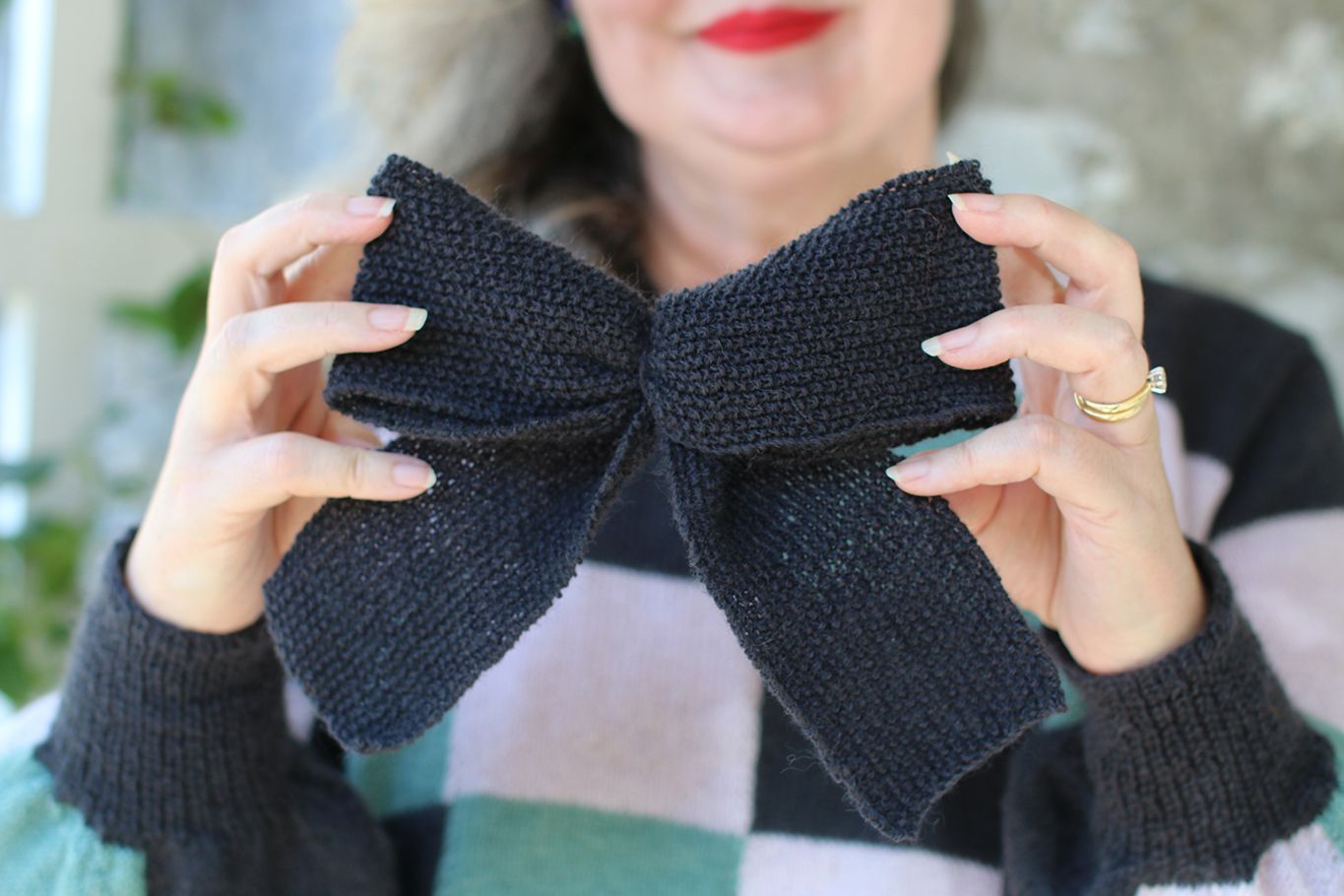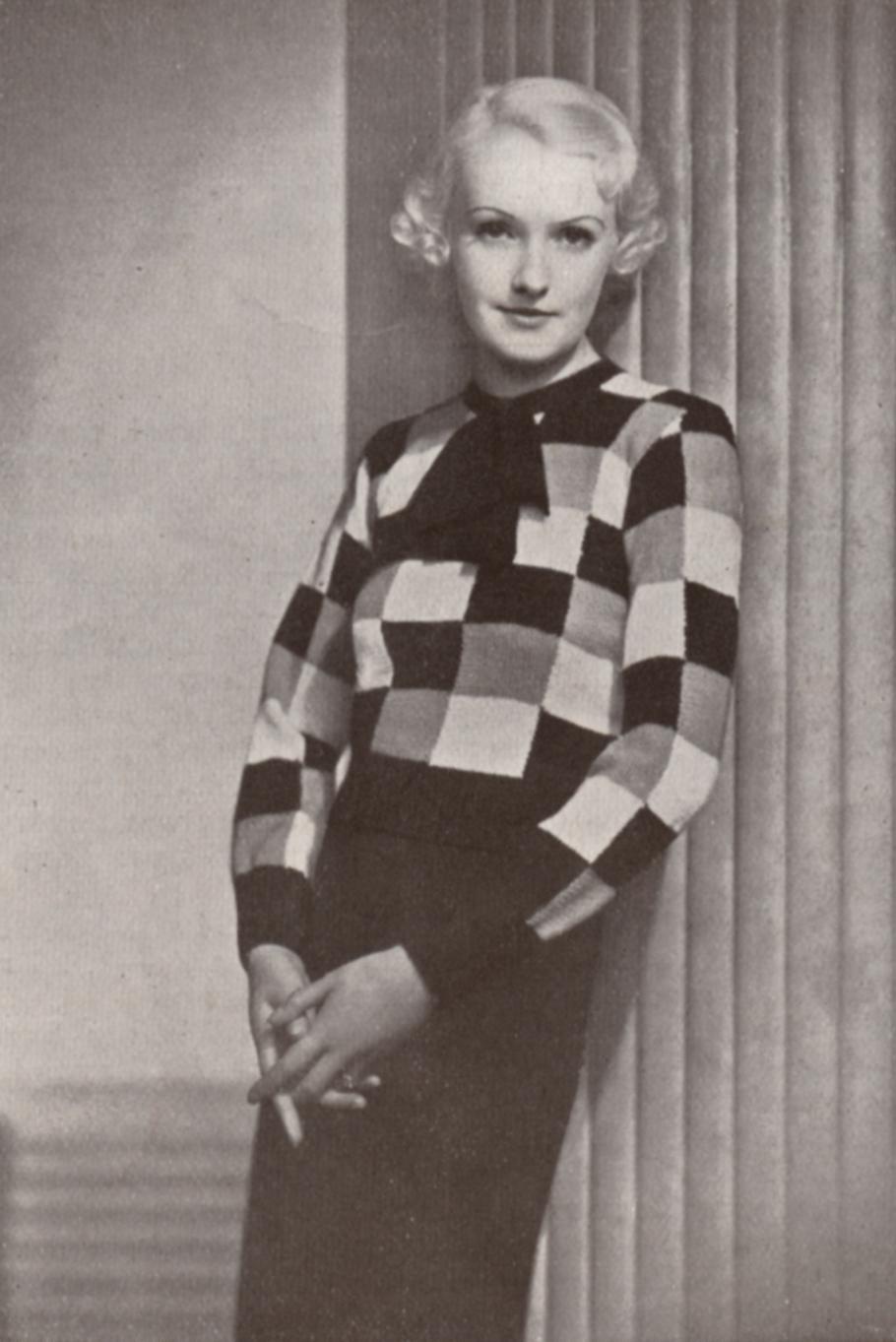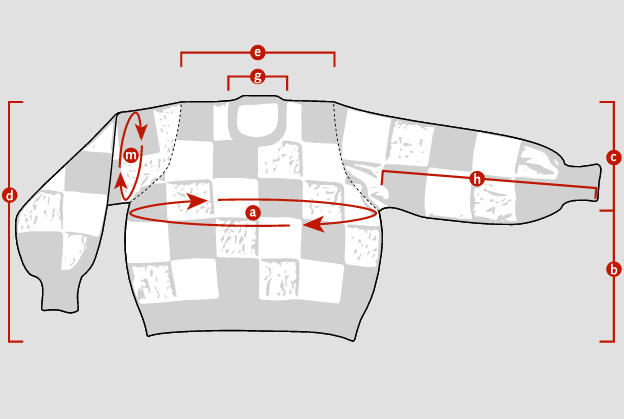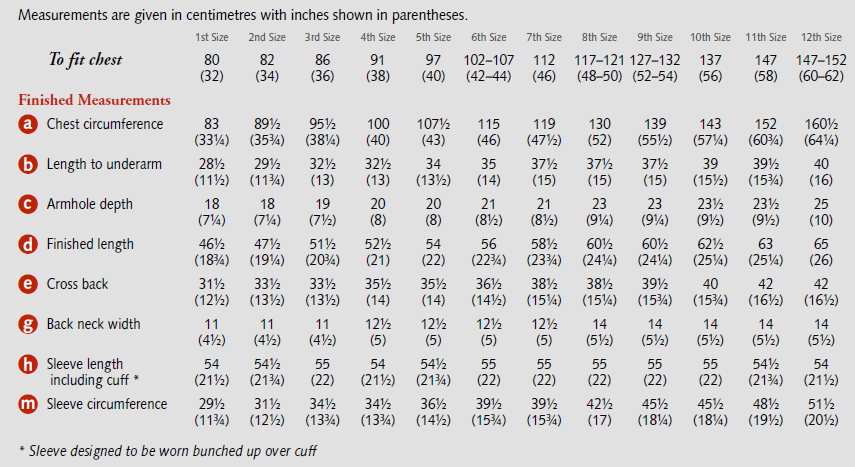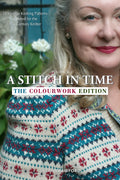WORLDWIDE SHIPPING - IOSS REGISTERED FOR EU CUSTOMERS & DUTIES PAID FOR US CUSTOMERS
WORLDWIDE SHIPPING - IOSS REGISTERED FOR EU CUSTOMERS & DUTIES PAID FOR US CUSTOMERS
Patterns
Yarn
Kits
Our yarn kits contain the required amount of yarn needed to complete the project in a particular size.
Recently added
Our yarn kits contain the required amount of yarn needed to complete the project in a particular size.
Recently added

Bobby Yarn Kit

A Stitch In Time Vol 3 Yarn Kits

Evolution Yarn Kits

Echoes Yarn Kits

The Vintage Shetland Project Yarn Kits
Harlequin
This pattern is currently only available as part of
A Stitch In Time Volume 3 - The Colourwork Edition
which can be purchased here
- This pattern is currently only available as part of A Stitch in Time Volume 3, the colourwork edition which can be ordered by following the link above
Harlequin is an elegant sweater featuring repeating squares in three colours knitted throughout using intarsia techniques. Harlequin is knitted flat in separate pieces and then sewn together. It is finished with a stylish neck-line with a knitted tie bow.
The Harlequin Jumper pattern was originally published by Scotch Wool & Hosiery Stores in the early 1930s as a single size pattern to fit chest size 32-34 inch (81-86cm). The pattern was provided free as part of a promotion with “Mabs Fashions” a weekly women’s magazine. There were over 350 branches of the Scotch Wool & Hosiery Stores at its peak, which were owned by Fleming, Reid & Co. Ltd who operated a worsted spinning mill in Greenock, Scotland. Here the spun their “Greenock” knitting wools and also produced hosiery and underwear which were all sold from their stores around the UK.
The construction method suggested for the original Harlequin Jumper pattern is extremely unusual, complex and non-intuitive so in this instance I have taken the unusual step of completely rewriting the pattern to create a much more user friendly pattern and one which could be graded into 12 sizes to fit from 32-62 inch (80-152cm) chest.
The sweater is knitted from the bottom up, in pieces, commencing with a deep ribbed welt. Increases are worked immediately after the ribbing is completed, to create a slightly blouson shape – typical of the 1930s. Intarsia squares are then worked throughout with 5, 6 or 7 squares worked across the back and front pieces, each square worked with a separate ball of wool. As you change from one colour to the next, simply lay the yarn just worked over the yarn about to be used, and bring this yarn up from below, there-by catching the previously worked shade in and preventing gaps from forming.
The sleeves are worked in the same way, with all stitches required cast-on immediately after the deep cuff has been worked. The sleeves are slightly longer than standard, designed to have a slight balloon shape and to fall over the ribbed cuff. Harlequin has a neat round neck and can be worn either with or without the detachable tie I have created, making this a really adaptable sweater for all kinds of occasions.
Harlequin comes in 12 sizes to fit from 32-62 inches (82-152 cm) chest.
Harlequin is knitted in FENELLA, a 3 ply weight wool, created to replicate the fine ‘vintage’ yarns many of the patterns of this period used. The original pattern used a bold mix of red, white and navy blue shades – although only pictured in black and white of course – but I wanted to use a slightly more subtle colour palette, that represents a more typical 1930s colour scheme. I chose to use Charcoal, Verdigris (a soft, sage-green) and Columbine (a pinky-lilac) but really the options are endless with this sweater!
A yarn kit is available containing all the yarn required to knit Harlequin.
Yarn
Susan Crawford Fenella 2 Ply, 100% British wool (125m / 136 yds per 25g skein)7 (8, 8, 9, 9, 10, 11, 12, 13, 13, 14, 15) skeins, shade Charcoal - yarn A
2 (2, 3, 3, 3, 3, 3, 4, 4, 4, 4, 4) skeins, shade Columbine - yarn B
2 (2, 2, 2, 2, 3, 3, 3, 3, 3, 3, 3) skeins, shade Verdigris - yarn C
Gauges
32 sts and 36 rounds = 10cm (4in) measured over stocking stitch worked flat, after blocking.We obtained gauge using a 3mm needle.If necessary use an alternative needle size to obtain the correct gauge.
Suggested Needles
Large Needles: Pair of 3mm (US 2 / 3) straight needles; Spare 3mm (US 2 /3) straight needleSmall Needles: Pair of 2.5mm (US 1 / 2) straight needles or set of 2.5mm (US 1 / 2) DPNs
Notions
Safety pin or brooch pin, pins, tapestry needle- Intarsia; Working flat; Simple increases & decreases; Sewing up a garment; Pressing & blocking.
Downloading Your Pattern
Our patterns and e-books are supplied in PDF format.
Once you have completed your purchase, follow the instructions on your order confirmation to download your PDF. Your order confirmation is also sent to you by email and includes the link to initiate your download from our website, so please ensure the email address you use is correct; Additionally please make sure that sales@susancrawfordvintage.com is in your allowed email list to prevent your order confirmation being caught in a spam filter.
Please note that every pattern or e-book you purchase from us is also stored permanently on your Susan Crawford Vintage account and can be accessed or downloaded whenever needed. You will also be notified of any pattern updates which can then also be downloaded via your account.
You may also like
Recently viewed products
Subscribe to my Newsletter
Sign up for updates on new releases, exclusive discounts, sales and much more
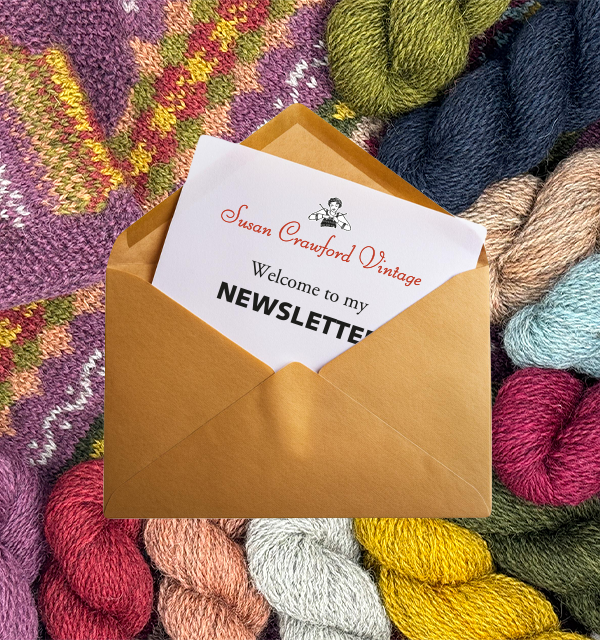
Subscribe to my Newsletter
Be the first to learn about new books, new pattern releases as well as updates on new releases, exclusive discounts, sales and much more.



















